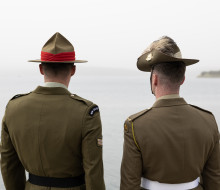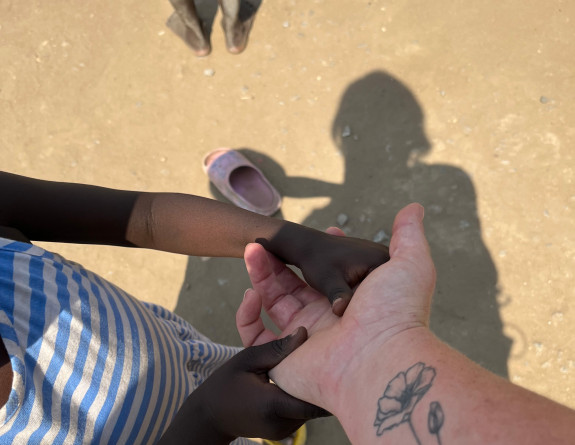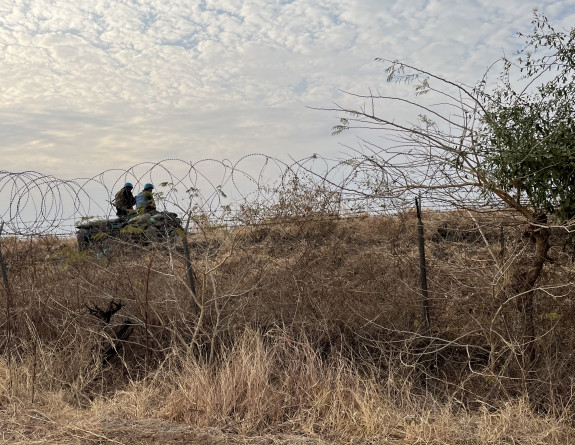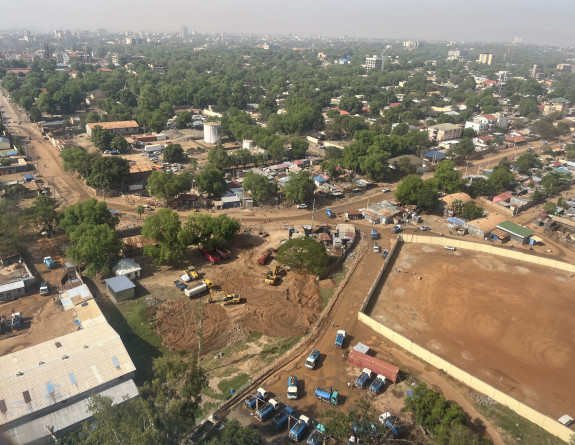
NZDF & ADF combine to overcome Gallipoli commemoration hurdles
26 April 2024
Unfortunately you are viewing this website on an outdated browser which does not support the necessary features for us to provide an adequate experience. Please switch to a modern browser such as latest version of Google Chrome, Mozilla Firefox, Apple Safari or Microsoft Edge.
Ngā mihi nui
Lieutenant Colonel Sheree Alexander is putting her New Zealand Army training to good use in South Sudan, where she is one of three New Zealand Defence Force (NZDF) personnel posted to the young country.
Born and raised in Kirikiriroa (Hamilton), Lieutenant Colonel Alexander joined the army nearly 25 years ago at her mother’s suggestion.
She’s now serving as the Deputy Plans Officer within the force headquarters for the United Nations Mission in South Sudan (UNMISS).
Her current role serves as a reminder of how robust the NZDF’s training system is, which produces soldiers and operators able to adapt to whatever situation is facing them, and develop and enact a successful plan.
She is one of the around 18,000 personnel serving with UNMISS to help the country, which is facing many challenges - from conflict to poverty, food insecurity and the widespread displacement of its population.
UNMISS was established as a civilian-led mission to support South Sudan’s government, protect its civilians, monitor and investigate human rights violations, provide access to vital services and build toward peace in the country.
The mission includes civilian roles working alongside members of the United Nations Police and the UNMISS force.
Contributing countries provide staff officers, United Nations military observers (UNMOs) and personnel from across signals, engineering, medical, aviation, and force protection to the UNMISS force.
The three Kiwis are each located in different camps throughout South Sudan, with Lieutenant Colonel Alexander based in the capital city, Juba.
Their tasks are challenging as they have a wide range of responsibilities and operate in an unpredictable environment.
“We are required to act as negotiators or mediators, drivers, vehicle commanders, patrol commanders, signallers, medics, mechanics, and in the wet season I suspect we’ll be acting as recovery commanders as well.’’
They must also be able to operate effectively with people from a diverse training background with a wide range of skills and varied approaches to professionalism.
Patrolling is a crucial part of enabling the United Nations to better understand the environment and help provide security and stability for the people living there.
Advice is provided to inform which patrols to go on and “who to talk to, how to prepare for various situations, and how to respond when the situation changes’’.
They would often engage with a variety of people out on patrol, from civilians to the local defence force leadership and even criminal groups.



A young girl tries to clean off Lieutenant Colonel Alexander’s tattoo during an orphanage visit (left), UN peacekeepers in South Sudan (middle), Flying over Juba, South Sudan (right).
Lieutenant Colonel Alexander said it’s “quite confronting” to see the vulnerability of the local people, particularly children, to exploitation.
“The cost of living crisis that we feel at home in New Zealand is on another level here.”
Fuel costs US$16.50 per litre - approximately NZ$27 - and a 250g piece of cheese goes for US$12 - close to NZ$20.
People have to walk considerable distances to access health care, and may face a long wait when they get there for treatment or medicine.
Lieutenant Colonel Alexander said the uncertainty of living conditions makes it difficult for families, and society in general, to move forward.
There are 40,000 people living in the Protection of Civilian (POC) camp in Malakal, and they are a long distance from any support networks or industry, making it difficult to see a way out of their circumstances.
Most of the camps in South Sudan for internally displaced people have been around for up to 11 years, with some people living there since they opened.
“A privately run orphanage in Juba received 30 extra children from a camp in a month.
“It’s a huge drain on their limited resources, but if they turned them away, those kids - one was only three months old - would have been on the streets of Juba.’’
But she said the posting has its light-hearted moments too when working with other nations.
“I spend a bit of time explaining common idioms and Kiwi English - herding cats, ducks in a row - and our pronunciation of vowels can cause a few confused looks.’’
During her Army career, Lieutenant Colonel Alexander has deployed twice to Afghanistan and experienced another deployment to the Middle East. She was also involved in the NZDF’s support during Covid-19.
“I have had so many experiences that I wouldn’t have had in any other career.’’
She had an encouraging message for other women thinking of pursuing a career with the NZDF.
“You are going to face challenges in any role or career, but the NZDF is open to progressing and has made great strides in becoming a gender-conscious organisation."
“There is scope for females within the NZDF to shape the direction of the organisation and to have a positive impact on the lives of others, whether that be in New Zealand or overseas on operations.’’